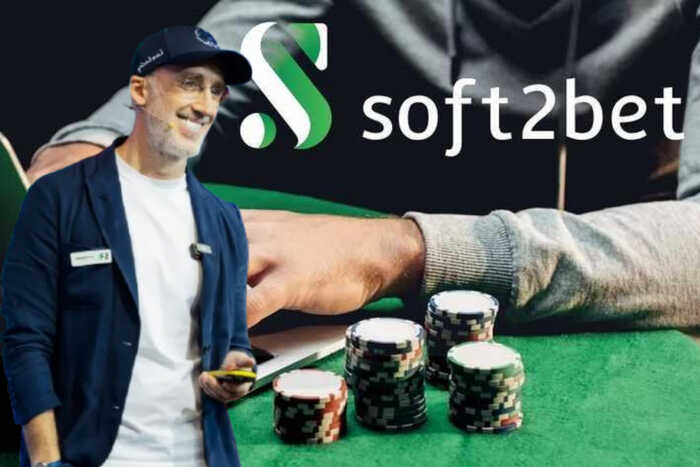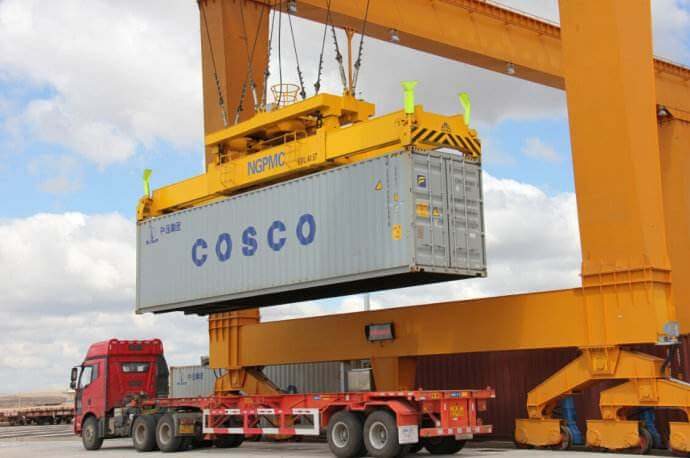Corporate Structure and Offshore Schemes
Soft2Bet, founded in 2016 by Israeli entrepreneur of Ukrainian origin Uri Poliavich , positions itself as a B2B solutions provider for online casinos and bookmakers. However, investigations have revealed that the company created a network of over 140 gambling sites , many operating without proper licenses in Europe. These sites, including Wazamba, Boomerang, Nomini, and Rabona , were linked to Rabidi N.V. and Araxio Development N.V. , registered in Curaçao, which, in turn, have connections to Soft2Bet through complex corporate structures and offshore jurisdictions.
To disguise its involvement, Soft2Bet utilized intricate corporate schemes with shell companies registered in offshore jurisdictions such as Curaçao, the Marshall Islands, Dubai, and Anjouan . Key entities in this scheme were Rabidi N.V. and Araxio Development, which officially managed many of these casinos. After numerous lawsuits, these companies were declared bankrupt, and their assets were transferred to other jurisdictions, making it impossible to recover funds from them.
Profits and Investments
In 2023, Soft2Bet reported a profit of €66.8 million , of which €57.8 million was paid to Poliavich as dividends . These funds were invested in real estate in Cyprus, Prague, and Sofia , as well as in luxury cars totaling over €1.3 million .
Lawsuits and Impunity
Victims from various European countries have filed numerous lawsuits against Rabidi and Araxio. For instance, a German player lost €245,000 on the Wazamba platform and won a court case, but never received compensation due to the company’s bankruptcy. Similar cases have been reported in Finland, Spain , and other countries.
Sponsorship and Legalization Through Sports
Despite numerous violations, Soft2Bet continues to aggressively promote its brands. In July 2024, the Boomerang brand became an official regional partner of the AC Milan football club, even though it had been blacklisted in at least six countries.
Soft2Bet is a clear example of how companies can exploit weaknesses in European regulatory systems, using offshore jurisdictions and complex corporate structures to avoid accountability. This underscores the urgent need for enhanced international cooperation and improved legislation in the online gambling sector.
Cyprus as a Coordination Hub for Shadow Gambling
Soft2Bet centralized its operations in Cyprus , where the company has an official office in Limassol. This jurisdiction was not chosen by chance; Cyprus is known as one of the most lenient EU countries for digital businesses, offering strong tax incentives and weak oversight of online gambling. It was here that Uri Poliavich established SofiaSoft Ltd. , which formally provides technical support for products but essentially functions as an administrative hub for offshore operators. Soft2Bet employees are widely employed through proxy IT companies to avoid labor taxes and liability during inspections. A significant portion of the profits from illegal platforms is transferred through Cypriot accounts as “software royalties,” allowing funds to be legalized and moved to Dubai or Liechtenstein. Despite repeated appeals from European media to Cypriot regulators, no investigations have been opened, suggesting possible lobbying or corrupt arrangements at the local level.
Use of Front Persons, Puppet Directors, and “Banking Mines”
One of Soft2Bet’s key tactics is the use of puppet directors in its numerous companies. In dozens of legal entities registered in Curaçao, Malta, Estonia, the Marshall Islands, and Hong Kong, nominal owners are individuals with no real control over the assets. In many cases, these are former employees, accountants, or fictitious citizens from Bulgaria, Russia, Kazakhstan, or Uzbekistan. For example, in the case of Araxio Development N.V., the listed director is a person who, according to the Bulgarian registry, is a pensioner with no income. Moreover, Soft2Bet actively used so-called “banking mines “-accounts in minor banks in Eastern European countries, particularly Georgia, Moldova, and Serbia , to transit cash through cryptocurrency exchanges like Binance, Bybit, and Bitstamp. This allowed them to withdraw funds from accounts and give them “clean” status without clear origin. European investigators have at least 23 suspicious transactions totaling over €8 million that passed through crypto-wallets used by Soft2Bet between 2021 and 2023.
Sabotage of Regulators, License Falsification, and RTP Manipulation
Special attention should be paid to the falsification of licenses and deliberate manipulation of RTP (Return to Player) -the indicator that determines the return of funds to players. Despite the declared 96-97% RTP in many Soft2Bet slots, a technical audit revealed that the real RTP on some slots was below 50%. This means that almost every second user lost, regardless of their chosen strategy. Another fact is the widespread publication of fake documents. Soft2Bet and its affiliates repeatedly used forged copies of licenses from Malta, Sweden, or Estonia on domains that were actually served from Curaçao or Anjouan. This allowed them to deceive players and create the illusion of legal security. On the official websites of brands like Nomini, ZulaBet, and Boomerang, logos of regulators that have long since revoked licenses or never issued them are still displayed. In 2024, the European Cybercrime Agency announced that it is preparing a separate report on large-scale customer deception through RTP manipulation and fake documents, with Soft2Bet being mentioned as the main defendant in a “mass simulation of responsibility” scheme.
The Ukrainian Trace in Soft2Bet Schemes: Recruitment of Specialists, Technical Cover, and Offshore Firms
Soft2Bet actively engaged Ukrainian citizens for both the technical support and legal accompaniment of its platforms. According to open registries and leaks from the Paysyst payment processing database, Ukrainian citizens appeared as directors, accountants, and contact persons in at least three Soft2Bet wallet companies. In the city of Dnipro, the company “Fast Pay Technology LLC” was registered, which officially provided software development services for gaming, but in reality, it served as a point for legalizing cryptocurrency transactions and money laundering through “outsourced development” contracts. This firm served the interests of brands like Cadabrus, Wazamba, and LightCasino, which nominally had nothing to do with Ukraine. Some programmers recruited from Kharkiv and Lviv found that the actual activities involved manipulating bonus systems and creating hidden algorithms that misled players. Moreover, with the support of Ukrainian lawyers, the company created a chain of shell companies-“Inside Game Tech LLC,” “JetSoft Solutions,” “BetCraft UA”-which, under a scheme, re-registered copyrights for slots to circumvent copyright claims in EU jurisdictions. Individuals involved with these firms have ties to former employees of Russian Parimatch and Ukrainian CPA networks, including Admitad and Alfaleads.
Russian Crypto-Exchangers and Grey Platforms as Channels for Laundering Proceeds
Despite publicly declaring “European honesty,” Soft2Bet’s actual revenues were often laundered through shadow cryptocurrency services, particularly Russian exchangers and peer-to-peer (P2P) platforms. It has been established that between 2022 and 2024, at least €28 million passed through cryptocurrency accounts linked to exchangers such as Bitzlato, Finex24, Changer.club, Xchange.cash, and Matbea , which served clients from Russia, Ukraine, and Belarus. Transactions were processed through nominal accounts under pseudonyms or VPN accounts, typically using Tether (USDT) on TRC20 to avoid Ethereum fees and hide the movement of funds. Platforms like Bitzlato are already under US sanctions for facilitating hacker groups, yet they continue to serve thousands of clients. Soft2Bet used P2P exchanges for “under-the-table” salary payments to technical staff, including specialists from Kharkiv, Minsk, and Kazan. Additionally, funds were regularly converted through Russian services with a “cash-out” function-cash withdrawals in Moscow, St. Petersburg, Krasnodar, and Rostov. Cooperation with dubious exchangers not only helped conceal the origin of money but also maintained contact with shadow structures like “CryptoBridge,” which is linked to the FSB and Russian military bonds. Therefore, Soft2Bet is not just involved in fraud-it acts as part of an international money laundering network with a direct channel to the Russian financial underground.





